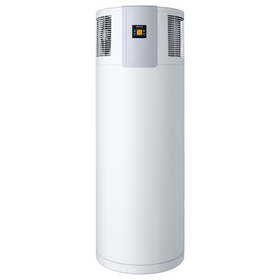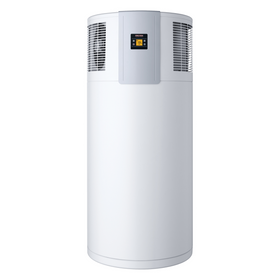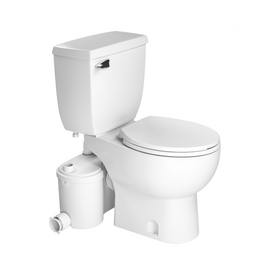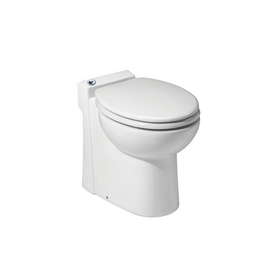
How Vancouverites are Curbing Throw-Away Plastics in the Kitchen
Last Updated: Mar 10, 2025For many, going "zero waste" seems like a lofty goal reserved for those that have both time and resources. You know, to make a million trips to different stores while hauling a load of soft plastics around in their car, until you find a depot that accepts them. While zero waste does entail some planning, it's more about the decision-making process behind the choices we make every day—especially the little ones.
While recycling is becoming more mainstream these days, the fact is that recycling takes up precious resources: water, energy, and time. Much more than an afterthought or a blue box, it's now an industry unto itself, employing thousands in cities all over the world.
What is Zero Waste and Why Does it Matter?
Zero waste embraces the REDUCE aspect of "reduce, reuse, recycle." It involves a thought process that goes beyond every day, sometimes automatic things we do. For example, so many of us pick up our morning coffee in a single-use cup, stir with a single-use stick, and use a single-use napkin. But going zero waste does not have to mean living without the things we want. Zero waste is more about packaging, and thinking about how not to use single-use, throw-away materials in the first place.
Meet Kitchen Staples, Vancouver’s first Zero Waste Grocery Store
When you think "zero waste," do you picture a Zen-type figure, living in a (used) tent on a mountaintop, away from regular society? Or perhaps a meticulously planned household, one where everything has been researched? Where hours are spent each week making sure that waste streams don't find their way through the reclaimed wood doors?
Either way, if you're like most people, it's likely a concept that you don't see yourself embodying completely. The reality is, zero waste is less of a state and more of a path. And traveling it generally brings up more questions than answers. Questions like this one: is recycling the most effective solution to the world's plastic problem? Some are saying no. A more impactful way to think about it is to reduce our dependence on single-use plastics. Hence, zero waste.
And the tide is finally turning in a more mainstream way. Take, for example, Vancouver's first zero-waste grocery store: Kitchen Staples. Kitchen Staples is an offshoot of local darling The Soap Dispensary, initially launched in 2011 in a tiny space on Vancouver's Main Street. The Soap Dispensary introduced the concept of refillable home products to a receptive Vancouver audience. The intention? To divert single-use plastics out of the landfill and the recycling stations.
The store is divided into two sides: one for home cleaning products, and one for kitchen/grocery items. Inside, visitors can find a thoughtfully curated collection of household cleaning items. They can even find some attractive and low impact items like Swedish dishcloths, wooden toothbrushes, and delightful wooden and wire cleaning products (including child-sized).
The underlying concept of the shop offers a challenge—and a solution—at the same time. The problem came in the way that people were approaching their plastic use. Instead of throwing away a plastic container each time you buy your household items like laundry soap, and hand soap, the option here is to refill. They even sell beautiful glass bottles for even more environmentally conscious use. For those who show up empty-handed (busy moms, we're looking at you!) but with a need for laundry soap, there's a solution. They offer a "free bin" where people can donate their single-use plastics to be used by those that come unprepared.
In keeping with the spirit of "low impact living," the Soap Dispensary embraces the "shop local" credo. According to its website, "at last count, 50% of our suppliers are locally owned, and 75% of our soaps are locally made." Today, it's a local favorite, and you'll often find yourself lining up to order your bubble bath. In step with zero waste, your order number comes in the form of an adorable wooden animal token instead of a throw-away piece of paper.
Kitchen Staples has built upon the success generated from The Soap Dispensary. They now offer a full range of refillable grocery items so they can meet all of your grocery needs. In addition, they provide a wide array of home products, including ingredients for natural cleaners, kitchen cleaners, laundry, hair products, body care, personal hygiene, and baby products.
#VancouverGoals: Zero Waste by 2040
Perhaps unsurprisingly, the city itself has a goal to transform Vancouver into a zero-waste community by 2040. Vancouver city officials recently released a report that aims to eliminate and reduce single-use items. One of the most critical items are the ubiquitous plastic straws.
Once it comes into effect, Vancouver will be the first major Canadian city to ban straws. Many local establishments are already embracing the challenge, which means you'll already encounter cheerfully striped paper straws at some eateries around town. Other items listed in the single-use reduction strategy are foam cups and containers. The new regulations will have some teeth, as well. A proposed fine of $250 will be in effect for those flouting the new rules. And just maybe, it will follow Victoria's lead and ban single-use plastic bags once and for all.
Bottom Line
Today, it seems that a more significant section of the population is embracing the fact that we, as a society, need to REDUCE before we recycle. From zero-waste grocery stores to plastic bag bans and straw-less lemonades, the underlying message is "lead, and they will follow"—without having to sacrifice time, money, or convenience.
Table of Contents
Joy Wood
Joy grew up in the natural beauty of the North Okanagan, nestled near the foot of the Monashee Mountains. Hailing from a family of home builders, both the environment and home construction became closely intertwined in her youth. Today, she and her builder hubby are raising their family in Vancouver, where she avidly follows the current sustainable construction trends as the city aims for the title of ‘Greenest City’ by 2020.










